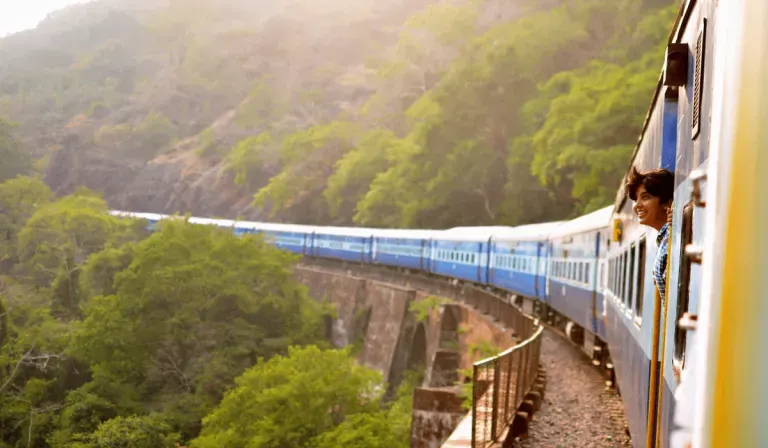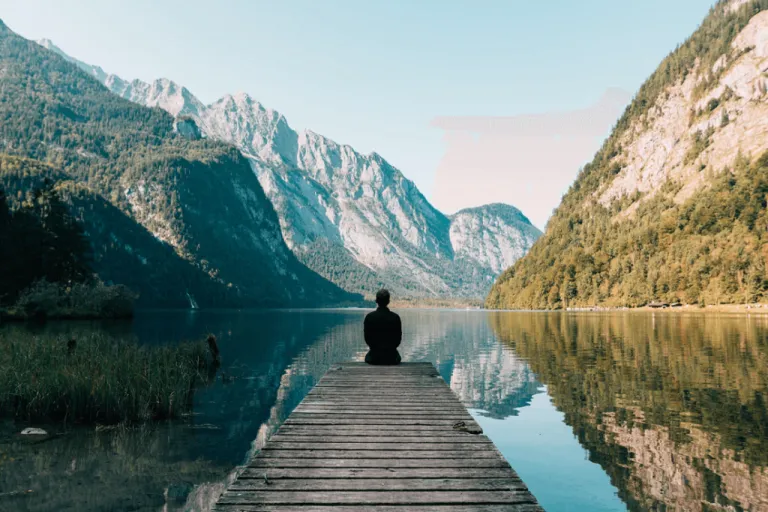Our favourite places to stay on this sleepy Cebu island.
No, Travel Does Not and Will Not Teach Us Everything

Recently, I shared an article I wrote about Filipino polyglots in a language learning and travel community, where I mislabelled language for dialect in the caption. Despite the honest mistake, which I corrected, the post garnered decent reactions. Until, one member of the group had made a comment calling me out for being “ignorant and bigoted”. Realising it was uncalled for, I turned to some members of the group who assured me I didn’t deserve it. “He’s pathetic,” some of my friends also said.
Weeks before that, another person called me out in a different travel community for responding “rudely” to a member who was asking for overseas leisure travel tips during the pandemic. This comment was, in fact, me telling the girl to reconsider booking the non-essential trip. Doing so would mean potentially exposing herself to coronavirus and those around her. When non-essential travel is mostly prohibited, or at least discouraged, educating others simply seemed like the right thing to do.
Also read: The Ugly Truths Behind Those Instagram-Worthy Travel Photos
There are travel lessons Filipinos ought to learn, but often don’t
While harmless to some, the above scenarios show that as remarkable as travel is and how exceptional one’s travel experiences are, they don’t always teach us the fundamental things about manners and accountability, among other things. Most importantly, there are so-called travel lessons Filipinos ought to learn, but often don’t, no matter how well-travelled we are.
Often in the name of positivity, we rarely read, talk, or hear about them, either. But what you’ll see below are a few more real-life instances of these learning experiences we’ve long associated with travel. A mix of personal observations and encounters, and those of other travellers, they hopefully serve as a reminder that travel isn’t always what we paint it to be.
1. Travel does not always teach us humility

That travel makes one a more humble human being is a story that we’ve probably heard many times before. After all, only through travel will we realise how big the world is in comparison to us. We see things from a different perspective often by putting ourselves in the shoes of someone who has more or less than we do. And in doing so, we pull back a bit and become more understanding of the people around us.
On the contrary, travel has taught some of us Filipinos to be more competitive. It’s also taught us to look down upon others and to always compare ourselves to fellow travellers even in degrading ways. From lines like “Nakakuha ka lang ng visa dahil sa asawang foreigner, eh,” to “Tamad ka siguro kasi lagi ka nagta-travel agency,” these forms of travel shaming have hurt us at least once, whether we know it or not. As in the first scenario above, some would turn to unnecessary language when wanting to educate others. This is neither normal nor acceptable.
2. Travel does not always teach us cultural and environmental sensitivity

“Travel will teach you about history and culture but some just go to cultural sites for the ‘gram, sadly,” Charmaine, who’s our country manager for TripZilla Philippines, shared. Sound familiar? That’s because it remains an issue among many Filipino travellers to this day. In fact, many of us can agree that as long as social media lives, people will continue to normalise travelling for photos to the point of disrespecting the environment and local cultures. But that’s not all, as seen in my next example below.
When in Vietnam, I, along with travellers, found ourselves sitting on the sidewalk, a tradition you’d often see locals do on a daily basis. In our case though, we were sitting on a marked area for motorbikes, which we didn’t immediately realise. Except for one in the group, we moved out of the way out of respect. Meanwhile, a local had been practically begging this one traveller to do the same. To this, he’d consistently respond “I don’t care,” in the most unimaginably presumptuous tones. Even I couldn’t believe it. Next thing we know, the local had lost it. “If you don’t respect my country, just leave. We don’t need you here. Go away!” he snapped. Only then did the traveller, visibly taken aback, moved.
Every day in our trips, many similar scenarios take place around us. Very often, in highly visited tourist areas where outsiders often feel the need to exert authority over locals or feel they can do anything they want on account of having fun, if not sheer supremacy. Ask yourself now, have you done anything remotely similar during any of your travels?
3. Travel does not always teach us to be responsible

Travel is addicting. Even I have to admit that. But like everything else that we find addicting, there has to be moderation. As we face a pandemic that’s fastly killing everything from economies to human lives, being a responsible traveller goes beyond promoting sustainability. In today’s case, one way is by educating ourselves and others to be more cautious about booking non-essential travel and focus on other things.
“But by travelling, we can help the economy,” some of us would probably argue. But so can donating our travel funds directly to the livelihoods of displaced travel workers, supporting small businesses, offering our plane seats to people who actually need to travel to see their loved ones or to perform essential duties. Why not start our own initiatives even? If we want to help the economy, there are other effective ways to do it that don’t require risking safety.
Furthermore, while travel does a good job of showing us the ropes of financial independence by teaching is how to spend our travel funds wisely, we tend to forget to use that same knowledge in other expenses outside our trips. A co-writer of mine, Alyosha, explained this rather perfectly.
“A lot of people will hate me for saying this, but this is something I just hear from older (wiser) peeps. They think there’s something wrong when you just get stuck in a cycle of saving up for a trip and then totally blowing off your savings on a great adventure,” she said. “Then, the cycle starts again. You’re stuck in a loop that doesn’t let you deal with ‘real life’.” According to her, this often applies to those “who totally do not leave enough room for other types of savings that would allow one to prosper in day-to-day living.”
4. Travel does not always teach us how to travel smart

“Travel does not teach you how to navigate, at least overseas. Because maps, directions, and routes will always be different from one another. You have to relearn navigation every time you’re in a new destination,” said another experienced traveller, Therese, when I asked her to share her thoughts on these travel lessons Filipinos ought to take notice more of.
When exploring new destinations, it’s easy to assume that one can just wing it after successfully navigating a completely different place in the past. It’s easy to assume that places, the people we encounter, and the problems we go through are one and the same. But they’re not. And if there’s one other travel lesson Filipinos often don’t end up learning even after years of travelling, it’s that experiences are relative and naturally subjective.
In another example, Regis, a frequent traveller to Malaysia, shared how he’d always end up spending more in his trips, no matter how past experiences taught him to be more mindful of his expenses. “When I travel, I sometimes don’t want to be cheap about it. In my mind, I know that these opportunities don’t always happen. So, I make the most of them by really investing,” the 22-year-old traveller said. “For me, travel is really R&R, and if you’re going to keep being 100% mindful of things, will you still enjoy it? That’s why I really prepare for my trips because I don’t want to be overly thrifty.”
5. Travel does not always teach us to love things we hate

When I travelled throughout Vietnam, eating tofu, artichokes, and other food I supposedly didn’t like became the norm. I simply remember avoiding them even when dining in international restaurants in the Philippines. But something about repeatedly eating these dishes taught me that they’re not as bad as I thought. In fact, I grew to love and long for them to this very day. Unfortunately, I can’t say the same for many others.
In reality, the opposite of this happens, when we’d hate the things we used to love because of too much travel, whether it’s preparing itineraries, spending time at airports, or even dealing with different personalities. In my case, I eventually got sick of staying in hostel dormitories where there’s very little privacy and safety. Instead, I’ve learned to invest in affordable private rooms where I can comfortably work and rest anytime I want to.
6. Travel does not always improve our intra- and interpersonal relationships

Despite the lack of scientific evidence, break-up curses in Bali in Indonesia and Baguio in the Philippines seem to be a recurring story for Filipino couples travelling to these places. Nonetheless, it’s enough to prove that even travel doesn’t always end up bringing people together. The reality is when two people discover more things about each other, it can hurt their relationship, immediately or eventually.
I’m not just talking about couples, too, as even travel brings out the absolute worst in friendships. “Usually they say that when you travel with other people, it solidifies any relationship you have with them,” shared Regis. “I’ve travelled with friends, and there were times we’d end up not speaking to each other after a trip.”
In the same way, travel will often confuse, rather than shed light on, a few things about ourselves. “There are times it just confuses you — it makes you question your own preferences and lifestyle. Because, let’s face it, people do change,” said Alyosha, who had her first life-changing overseas trip back in 2016.
7. Travel does not always satiate our wanderlust and make us content

We’ve heard or experienced it before — we travel hoping to satiate our wanderlust; but when the trip is over, we feel ourselves wanting more. In that sense, travel doesn’t actually satiate one’s wanderlust but rather fuels it more. Similarly, it teaches us to never be content and to strive more the next time around, whether or not our expectations were met in those past experiences.
Tiffany, who’s been travelling the world with her mother for over a decade, agreed. “There’s always another place you feel like visiting or another thing you could have done, even if you feel like you did everything in your last trip,” she said.
Another traveller from Nueva Ecija added that by travelling too often, learning to live in the ‘now’ can be compromised. “Back when we could all still travel safely, many travellers tended to have a next-best-thing-itis, which usually applies to dating,” she said. “While travelling and enjoying a particular destination, you can’t help but already be excited about the next trip that should be better than this.”
Also read: 15 Practical Life Skills that Travel Teaches You
With all that’s said, travel teaches us many other valuable lessons no material thing can ever give. One of which is to find bliss and hope in things unfamiliar to us in times we need them — from getting that first approved tourist visa and finding love in a foreign country, to conquering a continent not many dare to visit. For as long as we acknowledge that travel isn’t the answer to everything and we make a conscious effort to improve ourselves without relying on a booked trip, exploring the world will be nothing more than a crowning accomplishment, so to speak.
Featured image credit: JK | Unsplash
Published at
About Author
Joser Ferreras
Subscribe our Newsletter
Get our weekly tips and travel news!
Recommended Articles
10 Bantayan Island Resorts, Hotels, and Rentals for Your Tropical Escape 10 Best Mountain Cafes in the Philippines for Your Peak Coffee Experience Coffee date on the mountains, anyone?
10 Family Outing Ideas in Metro Manila Under ₱500 Looking for a weekend bonding with the family under ₱500? Head to these places, pronto!
10 Long Weekends in the Philippines in 2023 Book those flights ASAP.
Top 10 Post-Breakup Destinations for Healing and Self-Rediscovery Ready for a solo travel?
Latest Articles
Dingalan Travel Guide: Nature Spots to Discover Now Underrated coastal gem in Aurora
What to Eat in Bicol: Iconic Dishes and Treats, and Unique Pasalubong You’ll Love Spice up your foodie adventure with iconic Bicol dishes and must-try pasalubong!
Top Travel Trends in the Philippines for 2025 New spots, tips, and trends
New UK Adventure Park to Visit in Devon and Cornwall Fun countryside escape near London
Ultimate Camarines Norte Travel Guide: Waterfalls, Beaches, and More From surfing to secret waterfalls, Camarines Norte is your next escape!

